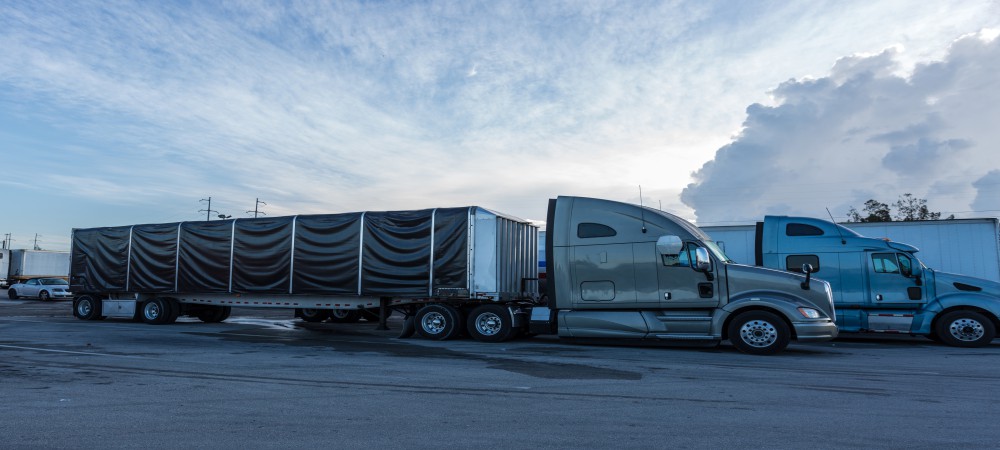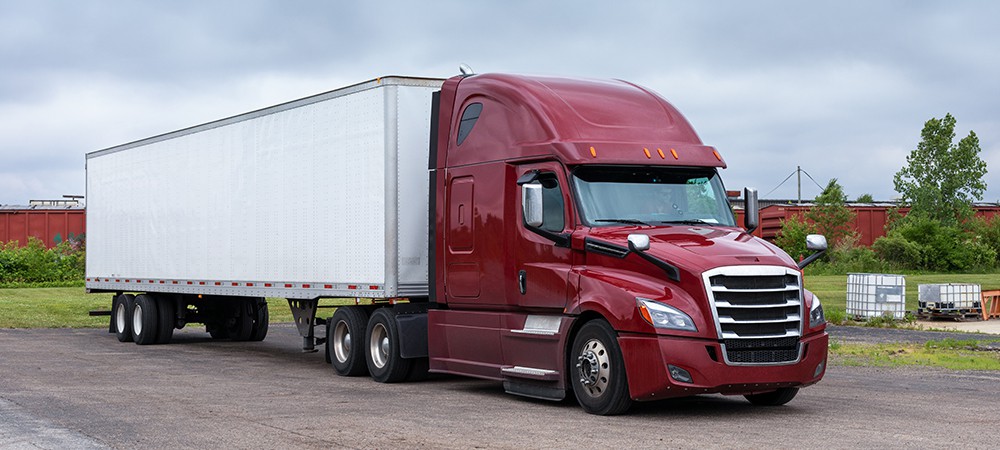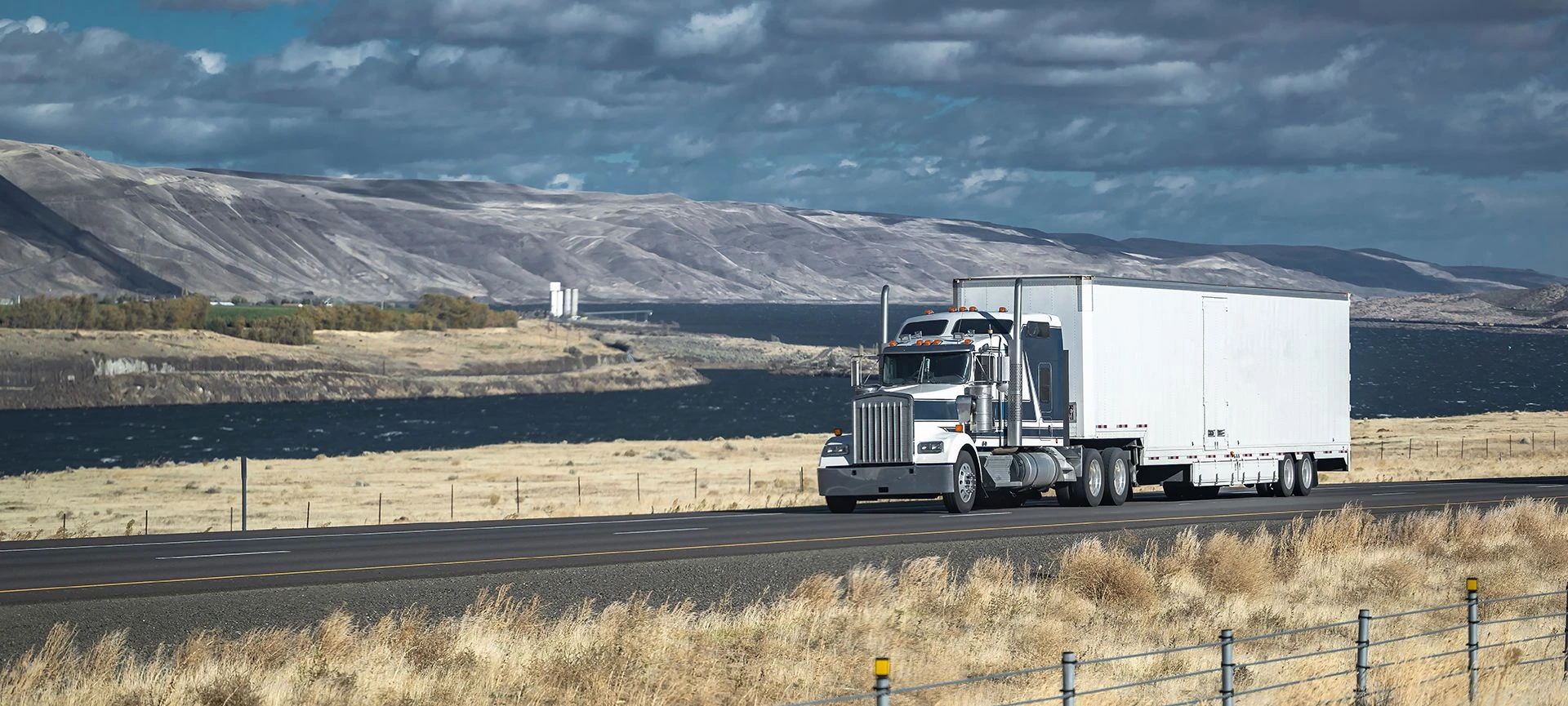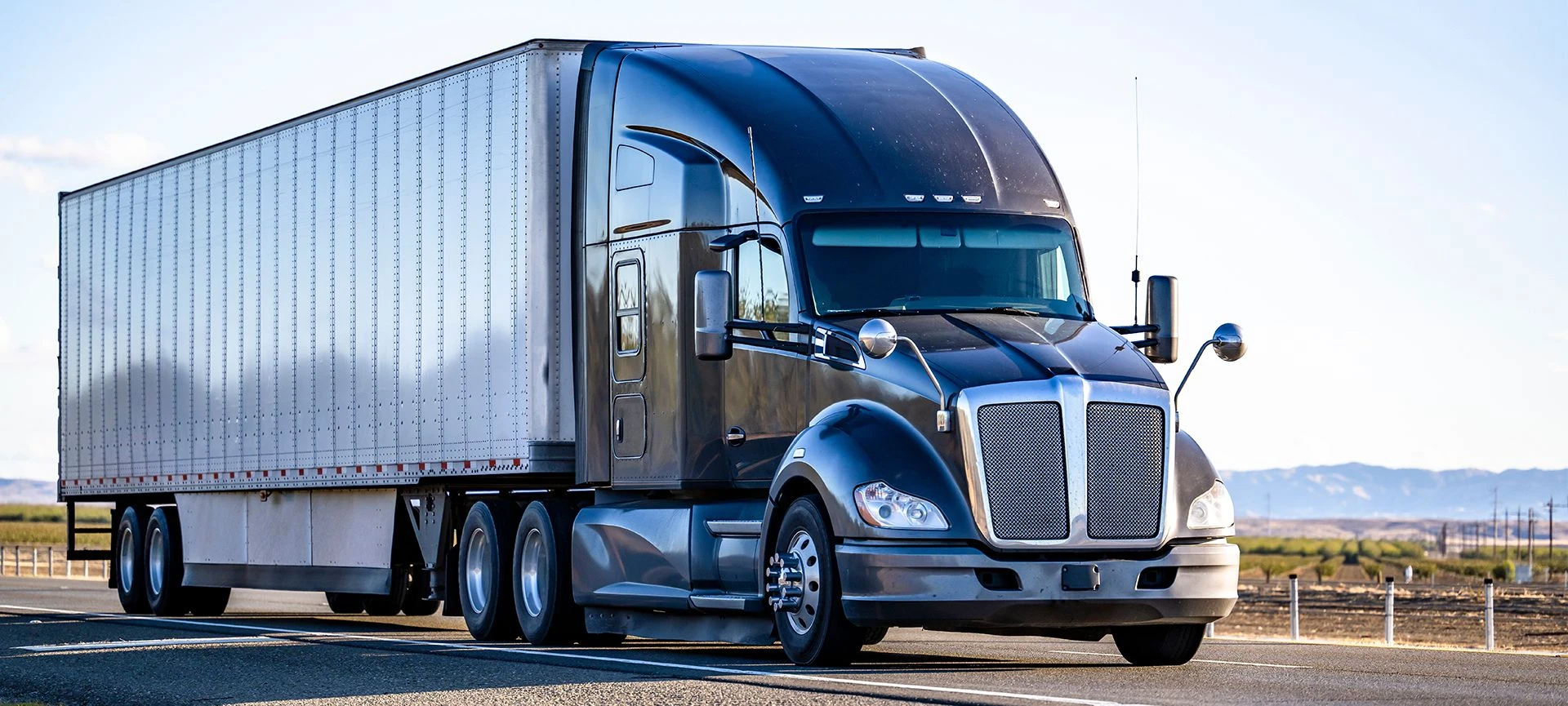Cargo can be seen being transported almost on a daily basis. You get to see different forms of trailers attached to trucks and semi-trucks. Throughout the years, we have been blessed with numerous inventions and breakthroughs in technology that have given us improved ways of transporting cargo for short and long distances.
From open flatbeds transporting heavy equipment and other types of large-size cargo to closed trailers, one can see that each type of trailer has its own unique features that make it the best option to be used in specific situations. With this article, you will get to know more about dry van trailers, how it differs from other common shipping methods, and other information that you may expect from them.
Dry Van Freight Transportation
Dry van freight is one of the most commonly seen cargo transports. It is a popular way of shipping partial truckloads, full truckloads (FTL), and less-than-truckloads (LTL). Basically, it is a fully enclosed trailer, which attaches to a semi-truck that is anywhere between 28 feet to 53 feet.
Dry van is designed to ship pallets of cargo and any other type of equipment that can fit the boxed dimension of the trailer.
- 53’ trailer measures 53’ x 8’6” x 8’6”. It can accommodate around 26 standard pallets or cargo that has a total weight of 45,000 lbs.
- 28’ trailer measures 28’ x 8’ x 9’. It is commonly used for LTL shipments and can carry around 14 standard-sized pallets or a total weight of 22,500 lbs.
Dry van trailers have no temperature or climate control which makes them a bad option for goods that need to be refrigerated. Instead, they are best used for cargos like clothes, electronics, machinery, packaged foods, and other types of consumer items. With a large space that makes sorting and organizing easy, it is possible to transport large amounts of freight conveniently.
To get a better view of dry van shipping, the list below shows some detailed information on the features of 3 other commonly used shipping methods:
Flatbed Trailers
- Has a long open platform, usually made of steel, which is connected to a truck or semi-truck.
- Commonly used to transport heavy equipment, construction materials, shipping storage containers, and various types of large machinery.
- Flatbed trailers are 5 feet from the ground and can carry tall equipment that does not exceed a height of 8’4”.
- Legally, it is able to transport cargo with a total maximum weight of 48,000.00 lbs.
- Can have a length ranging from 20’ up to 53’.
- This shipping method is bounded by travel safety restrictions imposed by the Canadian Council of Motor Transport Administrators (CCMTA) and can be seen in the National Safety Code (NSC) Standard 10 – Cargo Securement.
Step Deck Trailers
- Also called drop deck trailers.
- Designed to transport heavy and tall equipment or materials.
- Its design has similarities with a flatbed trailer as it also has an open platform.
- Designed so that the edge of a tractor would fit perfectly.
- Usually, the lower height of the bottom deck is used for carrying taller equipment and machinery.
- It is allowed to haul cargo with a maximum weight of 48,000 lbs.
- The maximum length allowed to be transported is 48 feet.
- Its unique feature is that it has 2 visible deck levels.
- The top deck, which is positioned in front near the truck cab, has a shorter length with a length of 11 feet. It has the same 5 feet height as flatbed trailers.
- The bottom deck is longer with a length of 37 feet. The height of the bottom deck is around 3 feet 6 inches from the ground. With its lower center of gravity, it is great for carrying heavy loads.
Refrigerated Trailers
- Also called a “reefer trailer” or a “chiller truck.”
- Best used for long-distance transport of temperature-sensitive cargo.
- It is set up with a refrigeration unit at the front which can either heat or cool the cargo depending on its required temperature.
- The walls of this trailer are either a box body or an insulated curtain, which allows for loading from both sides and the rear of the trailer.
- Refrigerated trailers have a dedicated fuel tank that powers the refrigeration system. It is designed to last a couple of days when fully refilled.
- The floor usually has channels to allow the air to flow underneath the cargo.
Related article: Dry Van Truck Vs Reefer Truck: Which Is The Best Option?
 Why Use Dry Van Shipping
Why Use Dry Van Shipping
The dry van shipping method is widely used in various industries like food and beverage, manufacturing, entertainment, clothing, automotive, and more. This is because these industries are selling products that have relatively smaller sizes and do not need refrigeration.
Cargos such as electronics, appliances, canned foods, cleaning products, automotive parts and equipment, furniture, clothing items, and building products prefer this type of shipping method. This is due to the enclosed trailer providing security to the cargo inside against external factors like flying debris or poor weather conditions. Also, a logistics company usually invests more in a service like dry van freight. This assures customers that they will not run out of dry van freight units right away.
Advantages of Dry Van Trucking Service
Dry van shipping services are common and preferred in the transportation industry because it has been answering the needs throughout the years. Here are a few advantages of using this shipping method:
- It can handle almost any type of cargo, as long as the size fits into the dimension of the trailer. However, it is not advisable to use this transportation method to ship items that need refrigeration.
- Dry vans secure all the cargo from any external hazards. It is able to protect the cargo from weather-related issues (rain, strong winds, or direct heat), physical hazards (rocks, dust, or any debris), and even theft.
- Seeing that dry van shipping is very common and is not considered a specialized service, it is more affordable for the customer.
- Dry van trailers can accommodate a large quantity of cargo. Most of the time, you can get your money’s worth since you can put as many items as you can to save on shipping costs.
- If your shipment does not fill up the whole space of the trailer, you will not have to worry about the payment of the shipping service. The logistics company can include your cargo with items from other customers so you can still divide the costs.
- The overall structure is durable and is built so as to not damage your cargo. Some even use hardwood flooring inside a dry van trailer which can assure you that there are fewer accidents happening along the road.
- With the use of roll-up or swing-open doors, it is safer and easier for cargo to be loaded and unloaded. This assures you that accidents will be avoided as much as possible.
- Since dry van trailers have a closed box structure with secure locks, onlookers will not be able to identify what items are being shipped. This prevents people from trying to steal your cargo especially if the products have a fair amount of value.
Related article: Dry Van Freight Shipping: Important Facts You Should Know
Choose the Right Dry Van Shipping Partner
Dry van trailers definitely have benefits that other common shipping methods do not have. One of the most important factors when choosing a shipping partner is being assured that your cargo will reach its destination in one piece. This should be the main concern of customers with transport needs. Based on the features and benefits you get when using dry van freight, they can definitely take away your transportation concerns.
Trustworthy Canadian shipping companies can show their high-quality standards when focused on ensuring the security and safety of the customer’s cargo during the transportation process. As customers, when you have some cargo that needs to be shipped, you should always look deeper into the logistics provider that you plan to hire to move your products. You should make sure that the company is transparent to you to avoid future problems with your cargo.
If you are planning to ship some cargo and are looking for a company that is a part of the top trucking companies within the industry and that offers personalized solutions to their clients, you should definitely get in touch with our team of professionals here at RoadLINX. You can call us at 905-760-1141 as we are always ready to help you with any shipping inquiries that you may have.



